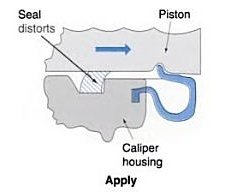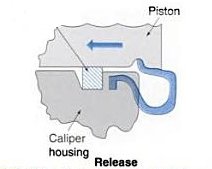Webbo15
Member
Had the brake fluid changed today as my little tester showed it to be nearly 3% water! My car was serviced by the supplying dealer for the first 2 years and the fluid was changed at the last MB service in 2009. It has been serviced since then by a local garage and so far as I can see from the extensive service history the fluid has never been changed by them so it has been insitu for 11+ years! The brakes actually felt fine and without my tester I would not have known it needed doing. Oils and filters and even spark plugs have been changed regularly but no one has thought the braking system important enough to bother to test the fluid or to change it
Done by local indie who did the usual health check at the same time. All ok with the exception of the battery that was reported as "weak". That did surprise me because I fitted a new Exide less than 2 months ago so I intend to have that checked by Halfords and if confirmed will be having words with the supplier to get a replacement. I bought it on line so not sure how it is possible to return a battery by carrier when unable to pack it in a sealed container like the ones the suppliers use. Does anyone know?
Done by local indie who did the usual health check at the same time. All ok with the exception of the battery that was reported as "weak". That did surprise me because I fitted a new Exide less than 2 months ago so I intend to have that checked by Halfords and if confirmed will be having words with the supplier to get a replacement. I bought it on line so not sure how it is possible to return a battery by carrier when unable to pack it in a sealed container like the ones the suppliers use. Does anyone know?


